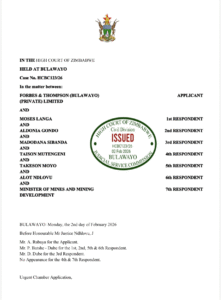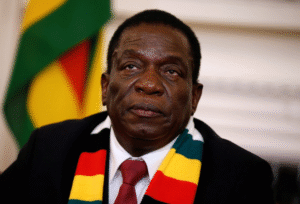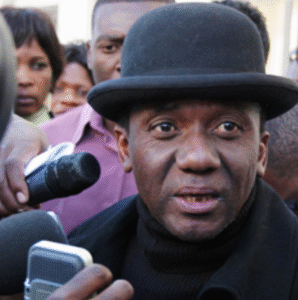XENOPHOBIA AT THE BORDER: SOUTH AFRICA’S CONTROVERSIAL STANCE AGAINST IMMIGRANTS

In a move that has ignited a firestorm of debate across South Africa and beyond, Gayton McKenzie, the leader of the right-wing Patriotic Alliance (PA), has taken a bold and divisive stand against undocumented immigrants. At the heart of this contentious issue is the Limpopo River, the natural divide between South Africa and Zimbabwe, which recently turned into an unlikely stage for a dramatic and aggressive anti-immigrant campaign.
During the festive season, McKenzie, alongside a group of PA members, set up camp along the banks of the Limpopo River. Their mission was clear and forcefully executed: to prevent undocumented individuals from crossing into South Africa. Armed with the slogan “Abahambe” – “they must go” in Nguni languages – they confronted those attempting to navigate the crocodile-infested waters, hoping to find refuge or opportunities on the other side.
This spectacle was not merely an impromptu action but a well-documented event, with McKenzie and his deputy, Kenny Kunene, taking to social media to broadcast their campaign. The videos, which quickly went viral, showed the PA group in heated exchanges with people at the riverbank, many of whom were visibly preparing to cross the river in small boats.
The underlying reasons for the mass migration from Zimbabwe to South Africa are deep-seated and multifaceted. Zimbabweans have been fleeing their country for decades, escaping an economy in ruins and a society wracked by political instability. The leadership of the late Robert Mugabe and his successor, Emmerson Mnangagwa, has done little to alleviate the economic despair that pushes millions to leave their homeland.
Despite the complexities of the migration issue, McKenzie’s approach is remarkably simplistic and unyielding. By focusing solely on halting the flow of undocumented migrants, without acknowledging the profound crises that drive such migrations, McKenzie’s campaign is both myopic and insensitive. His claim of intercepting nearly 1,000 Zimbabweans highlights not only his determination but also a concerning disregard for the broader context.
Moreover, McKenzie’s rhetoric feeds into a larger narrative of lawlessness and governmental neglect. By questioning the absence of police, traffic officials, and the South African National Defence Force (SANDF) at the border, he taps into public frustrations over border security. Yet, his confrontational stance, including a reported altercation with a local farmer over water usage, only exacerbates the tensions and complexities of the border situation.
The PA’s actions, under the guise of immigration control, veer into outright xenophobia. Targeting a vulnerable group fleeing economic and political turmoil, the campaign simplifies a complex issue into a matter of vigilantism, devoid of empathy or constructive solutions. This raises critical questions about the role of political leaders in handling immigration and border security. Legitimate concerns over national sovereignty and border management must be balanced with a humane and nuanced approach to migration.
The Beitbridge border incident underscores a distressing rise in xenophobic sentiments within South Africa, particularly among certain political factions. It calls for a reconsideration of immigration policies, urging a shift towards understanding, compassion, and a recognition of the underlying factors that compel people to migrate. As South Africa confronts its challenges, the discourse around migration and border control remains a pivotal issue, demanding thoughtful, inclusive, and humane responses.





